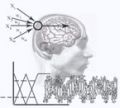General Track
Full track papers, short track papers and doctoral abstracts/A1 posters within the scope of the conference may be submitted to one of the following General Track sessions. These papers will be reviewed by knowledgeable referees, and if accepted, allocated to oral or poster sessions for presentation at the conference. There will be prizes for the best full paper, the best short paper, the best doctoral poster, and the best invited conference track.
Authors may also submit to an Invited Session if invited to do so by the session chair, or their paper fits the scope of the session better than the General Track.
The General Track Sessions are as follows:-
Sustainable Buildings: :
The application of science and technology in assessing, monitoring and optimising the environmental performance of existing buildings and new sustainable buildings, their systems and users through either quantitative or qualitative techniques - during the design, construction, commissioning, handover, operation or retrofit and refurbishment process. Desktop case studies; physical testing of internal comfort conditions versus energy use and climate conditions; building user, occupant and design team interviews. Building performance; measurements (thermography; air tightness testing; etc); education and training; development of assessment, monitoring and optimisation methods; comparison of methodologies and regulations in one country or between countries; modelling, optimisation and validation of building, neighbourhood and cities - design with performance in use. Post occupancy evaluation, including renewable energy performance, building systems and user interaction in buildings, neighbourhoods and cities; the use and evaluation of user guides; the evaluation of design team and occupant walk-throughs.
Chair: John Littlewood, Cardiff Metropolitan University, Wales, UK
Smart Energy Systems and Optimisation:
Design, analysis, implementation and validation of methodologies and models to analyse smart energy systems. Management, control and optimization of smart buildings, smart cities and smart grids, simulation and demonstration case studies, demonstration projects. Specific energy system analysis at regional or country level. Energy demand management and demand side response; smart meters, automation and control challenges in combination with the grid restrictions for operability and overall system integration, micro grids. Analysis of technologies in future sustainable energy systems; control and management of energy supply options; stock segmentation and models and their future scenarios.
Chair: Catalina Spataru, University College London, UK
Renewable Energy Technologies and Integration with the Built and Natural Environment:
Solar photovoltaic energy, solar thermal energy systems, concentrating solar power, large-scale installations; wind power, wind farms, wave, ocean and hydro power; biomass and bio energy, geothermal energy technologies; ground-source and air-source heat pumps; hydrogen production and storage, fuel cells; electrical engineering for renewable energy, power conversion systems, grid tie converters; integration of renewable energy sources with buildings, neighbourhoods, cities and the rural environment; financial incentives, policies, regulations and solutions for the transition to a low carbon or carbon neutral future; low carbon heat and power; district heating vs. centralized systems; customers' expectations; practical guidance.
Chair: Mahieddine Emziane, MASDAR Institute of Science and Technology, Abu Dhabi, UAE
Computing and Intelligent Communications Technology for Sustainability :
Green Information Communications Technology (ICT) and Green Information Technology; environmentally sustainable computing, energy-efficient and low to zero energy systems; software tools for: environmental management systems, environmental impact assessment systems, environmental Sustainability and Development, Life cycle analysis methodologies; Artificial Intelligence; sustainable, and economic systems, processes and cloud computing; software and hardware tools to enable sustainable behaviour in non domestic buildings.
Chair: Anne Håkansson, KTH Royal Institute of Technology, Sweden




